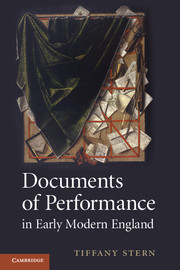Book contents
- Frontmatter
- Contents
- Acknowledgements
- Textual note
- Introduction: Playwrights as play-patchers
- 1 Plot-scenarios
- 2 Playbills and title-pages
- 3 ‘Arguments’ in playhouse and book
- 4 Prologues, epilogues, interim entertainments
- 5 Songs and masques
- 6 Scrolls
- 7 Backstage-plots
- 8 The approved ‘book’ and actors' parts
- Conclusion: Repatching the play
- Notes
- Bibliography
- Index
5 - Songs and masques
Published online by Cambridge University Press: 18 December 2009
- Frontmatter
- Contents
- Acknowledgements
- Textual note
- Introduction: Playwrights as play-patchers
- 1 Plot-scenarios
- 2 Playbills and title-pages
- 3 ‘Arguments’ in playhouse and book
- 4 Prologues, epilogues, interim entertainments
- 5 Songs and masques
- 6 Scrolls
- 7 Backstage-plots
- 8 The approved ‘book’ and actors' parts
- Conclusion: Repatching the play
- Notes
- Bibliography
- Index
Summary
INTRODUCTION
Characters in Marston plays keep on calling for songs. ‘Wee must have the descant you made upon our names, ere you depart,’ says Catzo to Flavia in Marston's Antonio and Mellida, and it is obvious why: ‘Catzo’ signified ‘a man's privy member’, and ‘Dildo’, his fellow page's name, speaks for itself. The exchange leads up to a moment of song that will titillate the audience whilst simultaneously introducing the bleak sexuality of the play. Other characters in Antonio and Mellida also exhibit their natures as well as their emotions through the medium of song. The grief-stricken Andrugio proposes, ‘Let's have a song,’ though the song he hears will, in the event, be incapable of mimicking his sorrows: ‘and thou felt'st my griefe … Thou would'st have strook division to the height;/And made the life of musicke breath’. Throughout the play, songs extend beyond their tunes and words: they are important dramatic devices, depicting and creating mood, enhancing characterisation and defining emotional states; Sabol writes of the ‘highly dramatic – at times even melodramatic’ use Marston makes of songs; O'Neill calls him ‘a writer-musician’.
What is extraordinary in the circumstances is that hardly any of the actual words to Marston songs survive. The two songs discussed above, which are so carefully prepared for in their text, are lost: all that stands to mark the place where they should be is the single capitalised word ‘CANTANT’.
- Type
- Chapter
- Information
- Documents of Performance in Early Modern England , pp. 120 - 173Publisher: Cambridge University PressPrint publication year: 2009
- 1
- Cited by



